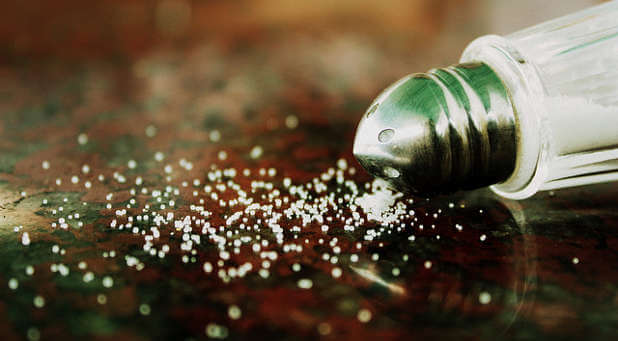In ancient times, salt was literally worth its weight in gold. Then, beginning in the 1970s, salt became a dietary evil with many experts urging us to shun it. But more recently, scientific research has determined that too little salt is more dangerous than too much of it.
So which is it: Is salt an invaluable nutritional resource or white poison?
The answer is an unsatisfying one: It’s a little of both—depending on the type of salt you eat, how much of it and whether you have a health condition that is exacerbated by sodium.
There’s no question that we need salt to live. It’s vital in running a host of physiological functions, such as carrying nutrients into cells, helping to maintain the body’s pH balance, facilitating nervous system transmission and regulating blood pressure. But many studies have suggested that too much salt can increase the risk of several health woes, including high blood pressure.
“Salt has many functions in the body, including supplying the needed electrolytes to balance fluid both inside and outside of cells,” registered dietician Joan Salge Blake tells Newsmax Health. “But too much salt increases the rate of hypertension, stroke and heart disease.”
To further complicate the issue, not all salt is created equal. The most commonly used type is refined, meaning it’s been processed with heat and chemicals into nearly pure sodium chloride. Still, it’s tainted by chemicals designed to absorb moisture and prevent clumping. Typically, iodine is added because it’s an essential element that many people lack in their diet.
By contrast, unrefined salt is minimally processed and contains up to 80 other minerals and trace elements, though no iodine. Unlike refined salt, it comes in colors—most commonly gray or pink. It’s also more expensive than its refined brethren.
Many alternative medicine proponents believe refined salt is indeed poison that can contribute to a lot of health woes, including arthritis, gout, kidney and gallbladder stones, constipation, hypertension, heart disease, stroke, asthma, osteoporosis and cellulite. But they sing the praises of unrefined salt for its health benefits.
“Humans evolved over time using natural, unrefined salt with its full complement of minerals,” notes Dr. David Brownstein, author of the book “Salt Your Way to Health.”
“Enzymes and hormones in our bodies were designed to utilize salt in its whole, natural form—not in a foreign, refined state. The consequence of utilizing salt in a devitalized [refined] form is a poorly functioning immune system, initiation and acceleration of chronic illness, and promotion of acidity.”
Brownstein believes that people are often salt deficient and recommends ingesting at least 2,400 milligrams of unrefined salt a day.
“Salt is a crucial element for the body and most people aren’t getting enough,” says Brownstein, a board-certified family physician and Medical Director of the Center for Holistic Medicine in West Bloomfield, Michigan, and author of The Natural Way to Health. “It’s absolutely the wrong thing to do to tell people to limit their salt intake.”
As far as unrefined salts go, pink Himalayan mined from ancient seabeds in Pakistan is reputed to be the best. Redmond’s Real Salt, which comes from mines in Utah, and gray Celtic sea salt harvested from the shores of Brittany, France, are also highly regarded. Some experts note that white salt, no matter what the label may say, is most likely processed and not as healthy as the colored alternatives.
Even if you use unrefined salt for your cooking and saltshaker, the truth is that most of the sodium Americans consume comes from processed foods. Some of the worst offenders are canned soups, tomato-based sauces, breakfast cereals, bread, cold cuts, canned vegetables and condiments. We average 3,400 milligrams a day, way above the government’s Recommended Daily Allowance of between 1,500 and 2,300 milligrams.
Meanwhile, the science on salt continues to evolve. Last year, the prestigious New England Journal of Medicine published the results of a massive research effort suggesting that people who conform to the RDA limits on salt actually have more heart trouble. And growing number of mainstream medical experts are now questioning the link between salt and blood pressure
Yet scientific proof supporting the merits of unrefined salt remains lacking.
“Where salt comes from is less of a concern than the amount in a person’s diet,” says dietician Blake, a clinical associate professor in the Nutrition Department at Boston University. “It’s not proven that going out and spending more money (on unrefined salt) will get you any medicinal benefits.” {eoa}
For the original article, visit newsmaxhealth.com.












